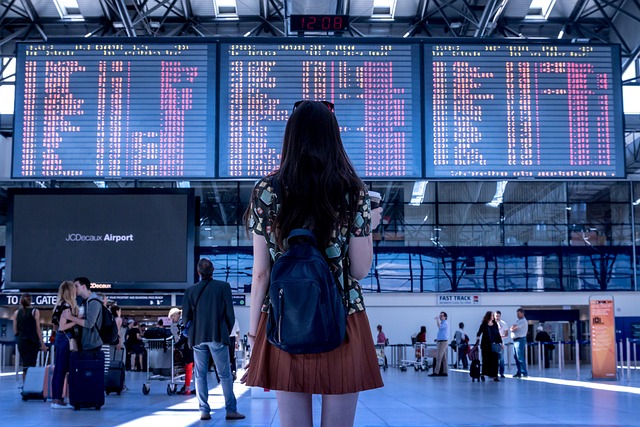Hotel Booking Secrets: Insider Tips to Save Big on Stays

Strong 8k brings an ultra-HD IPTV experience to your living room and your pocket.
The modern traveler has more access to information and booking platforms than ever before. But with convenience often comes complacency. Most travelers assume they’ve mastered the art of reserving accommodations — selecting a destination, choosing a hotel based on price and reviews, and confirming with a few clicks. However, what lies beneath the glossy interface of travel platforms are layers of unspoken rules, algorithms, and industry quirks that many overlook. To truly optimize your hotels bookings, you need to understand what goes on behind the scenes.
From booking windows and rate manipulation to loyalty hacks and overlooked timing strategies, hotel booking has evolved into a game of wits — and knowing how to play it right can make all the difference between an average stay and a premium experience at a fraction of the cost.
The “Best Price” Badge Isn’t Always the Best Deal
Online travel agencies (OTAs) like Booking.com, Expedia, and Agoda often claim to offer the best price guaranteed. In reality, the same room may be listed at multiple rates depending on how and where you search. Some platforms offer loyalty discounts, others add hidden fees at the last step, and many operate dynamic pricing based on your device, IP address, and browsing behavior.
Price comparison should be done in incognito mode to avoid inflated rates triggered by cookies. Alternatively, explore lesser-known aggregators that combine prices across dozens of platforms without markups. They often reveal deals not visible on mainstream sites.
Direct Booking Isn’t Just a Buzzword — It Can Unlock Hidden Perks
Hotels typically pay 15–25% commission to OTAs for each reservation. When you book directly, hotels keep that margin and are more inclined to reward you. Many chains now offer benefits for direct bookings, including free upgrades, early check-in, welcome drinks, or complimentary breakfast.
While OTAs might display lower base prices, the added benefits from booking directly often tip the value scale. Always contact the hotel directly and ask if they can match or beat the OTA price — most will, and with extras in tow.
Loyalty Programs Matter — Even for Occasional Travelers
Frequent travelers swear by loyalty programs, but even infrequent guests can benefit. Hotel chains are now extending value to entry-level members. Signing up is free and may immediately qualify you for discounted member rates, free Wi-Fi, or points that can accumulate surprisingly fast.
Moreover, loyalty status often extends to sister brands. A modest stay at a budget hotel could count toward elite status at a luxury resort under the same umbrella.
The 24-Hour Booking Rule Most People Miss
Most hotels operate on a 24-hour cancellation policy, but few travelers know about the "24-hour rebook window." This strategy involves booking a fully refundable rate and then rechecking prices in the 24 to 48 hours before your stay. Hotels frequently lower prices at the last minute to fill rooms, allowing you to cancel your original reservation and rebook at a cheaper rate.
Some travelers also use “flexible booking” services that monitor your reservation and automatically rebook if the price drops.
Not All Rooms Are Created Equal — Even at the Same Price
Room categorization in hotels is often far broader than most realize. Two standard rooms at the same rate may differ in size, view, layout, or proximity to noise sources. Savvy guests often contact the property before arrival to request the most favorable options.
Simply stating a preference like “quiet room away from elevators” or “high floor with natural light” can drastically improve the quality of your stay without spending a cent more.
Midweek vs. Weekend Rates — It’s Not Just About Supply
Most travelers assume that weekends are the most expensive. This is true for leisure destinations, but business hubs often reverse that trend. For example, hotels in financial districts of major cities like Singapore, Frankfurt, or Tokyo often offer reduced rates on weekends when business travelers depart.
Understanding a location's typical guest profile helps in planning dates. This nuance can be exploited for luxury stays at business hotels during their low-traffic periods.
The Secret Power of Calling the Hotel at the Right Time
Hotels tend to update their inventory and rates in the early evening, after check-ins have been processed and no-shows noted. Calling between 6 PM and 8 PM local time can give you access to last-minute availability and reduced rates that haven’t yet been updated on booking platforms.
During this window, hotels are also more flexible with upgrades and rate negotiations, especially if they anticipate lower occupancy.
Review Filtering and Manipulation: Read Between the Lines
Reviews are no longer the reliable indicators they once were. Many OTAs filter reviews, prioritize positive feedback, or bury complaints. Furthermore, some properties engage in incentivized review practices.
To cut through the noise, sort reviews by “most recent,” look for consistent patterns in feedback, and prioritize detailed reviews over one-liners. Be especially wary of hotels with overly generic praise and no specific mentions of experiences.
Flash Deals and Promo Codes — The Hidden Arsenal
While many travelers rely on base prices, discount codes and flash sales can drastically reduce costs. These are often time-sensitive or exclusive to third-party platforms. Niche coupon platforms and travel forums often reveal unadvertised promotional codes.
One such trick savvy users deploy is applying a Zen Hotels Promo code during checkout — this can unveil surprising markdowns not visible upfront. These codes can also sometimes include extras like free breakfast or no cancellation fees.
Booking Far Ahead Can Be a Gamble — Not Always a Win
Booking six months in advance gives you peace of mind, but not necessarily the best price. Hotels rely on revenue management software that adjusts rates based on booking pace, seasonal demand, and competitive pricing.
Often, the best time to book is 3–4 weeks before arrival, when hotels refine their projections. However, for peak seasons or major events, early booking remains the safest strategy — just ensure it’s flexible in case prices drop later.
Email Subscriptions and Hidden VIP Rates
Subscribing to hotel newsletters may seem like inbox clutter, but it’s often the gateway to unpublished deals. Hotels reward subscribers with early access to seasonal sales or VIP rates not listed elsewhere.
Travelers who book directly using these links not only get better pricing but also more lenient cancellation policies and priority requests. Some chains also offer tailored deals based on your previous booking behavior.
Room Upgrades Aren’t Random — There’s a Method
Ever wondered how some guests are upgraded while others are ignored? The secret lies in a subtle combination of timing, loyalty, and courteous communication. Guests who check in late in the day have a higher chance of receiving upgrades since the hotel has better visibility of its inventory.
Polite requests, mentioning a special occasion, or using elite loyalty status — even if it's free-tier — can all tip the scales in your favor. Professionalism and genuine engagement at check-in also play a role.
Price Drop Refunds: Use Them or Lose Them
Some booking platforms and credit cards offer refund protection if the hotel rate drops after booking. Most travelers don’t utilize these policies, missing out on potential savings. Tools like “price drop alerts” or third-party services can automate this process.
Check your credit card’s travel protection features — premium cards often reimburse the difference if a lower price is found within a certain time frame.
All-Inclusive Isn’t Always Inclusive — Read the Fine Print
All-inclusive stays sound convenient, but what's included can vary wildly. Some packages include only meals and soft drinks, while others bundle airport transfers, spa access, or even excursions. Scrutinize the breakdown before booking to avoid unexpected surcharges.
Some hotels market “semi-inclusive” stays under the same label. When comparing offers, weigh not just price, but value. A slightly more expensive stay with better inclusions may prove more economical.
Conclusion
The hospitality industry has become more sophisticated in its pricing, marketing, and guest engagement than most travelers realize. To make the most of your hotels bookings, it’s not enough to just find a room — it’s about extracting maximum value, avoiding pitfalls, and staying informed on ever-shifting dynamics.
These insider strategies, when layered together, can lead to elevated travel experiences without inflated costs. For the curious and the meticulous, hotel booking transforms from a chore into a craft — one that rewards those who dig just a little deeper.
Note: IndiBlogHub features both user-submitted and editorial content. We do not verify third-party contributions. Read our Disclaimer and Privacy Policyfor details.







